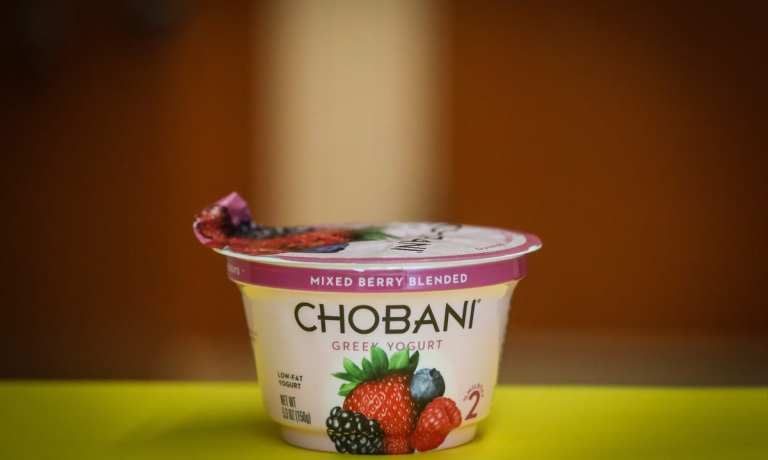Grocery Roundup: Chobani Goes Public, Shipt Goes Personal

Chobani is going public, and it turns out yogurt may be a hotter commodity than any of us thought. The company confidentially filed for its initial public offering (IPO) on Wednesday (July 7), and its valuation, an insider told Reuters, could exceed $10 billion.
In addition to the Greek yogurt for which the company is best known, Chobani also makes coffee creamers, plant-based dairy replacement products such as oat milk, and, most recently, the brand added ready-to-drink coffees to the roster. When oat milk competitor Oatly hit the stock market in May, it was valued at $13.1 billion, 30 percent above the IPO price.
“As we create the food company of the future, we’ll look at all options carefully to fuel our ambitious plans, especially with oatmilk and plant-based products,” Chobani Founder and CEO Hamdi Ulukaya said in a statement in February. “An IPO is definitely one exciting direction but whether or not we’re public, we’ll keep disrupting and making things better.”
Meanwhile, Greek yogurt frontrunner Oikos, owned by Danone, has been rebranding its yogurts to be fruitier and creamier, looking to widen its lead. CNBC reports that, while Danone has more than one third of the market, Chobani has under a fifth.
Last month, Chobani launched a Zero Sugar line of yogurt with natural sweeteners targeting health-conscious consumers. The company’s stated mission is to create “better food for more people.”
Shipt Adds Dietary Preferences To Meet Shoppers’ Individual Needs
Shipt, the Target-owned Instacart competitor that deploys gig workers to bring groceries and other household essentials from stores’ to consumers’ doors, just debuted a new feature that allows shoppers to get more specific with the foods they want to see on the platform. The new dietary preferences feature, announced Thursday (July 8), allows customers to search for products that meet their lifestyle needs.
This includes foods that fit into a specific diet such as keto-friendly products, those that exclude certain allergens such as soy or wheat, those that meet consumers’ religious needs such as kosher items, and those that may align with their ethics such as vegan foods.
“This feature helps customers easily use Shipt while maintaining their lifestyle preferences,” Karl Varsanyi, the company’s chief experience and product officer, said in a statement. “We know that Shipt Shoppers are the gateway to personalization and Shipt’s new dietary preferences feature helps them get to know customers better and make that personalization even stronger.”
The company’s shoppers can view these preferences so that, in addition to affecting what products customers see on the platform, the feature also informs substitutions for out-of-stock items.
Save A Lot To Undergo Massive Remodeling
Discount grocery chain Save a Lot is about to spend a lot. The chain announced Thursday (July 8) that it will remodel around one-third of its 1,000 stores throughout the rest of 2021 and to do the same for all locations by 2024. That means more than 300 remodels before the end of December. The remodels will feature aesthetic changes to bring stores up to date as well as sections that focus specifically on local growers and brands.
“As we continue to focus on becoming the brand of choice for our customers and a go-to source in our local communities,” the company’s CEO Kenneth McGrath said in a statement, “it was important that our logo, stores and marketing reflected and reinforced our mission of providing quality products at budget-friendly costs that consistently exceed the expectations of our customers.”
The remodels are part of a broader set of initiatives, including investing in new digital activations and signing with a new marketing agency, geared at helping the chain “gain new shoppers, retain our current shoppers and increase our basket size,” according to McGrath.
Kroger To Automate Supply Chain
Kroger, the second largest grocer in the United States, announced Tuesday (July 6) that it is partnering with warehouse logistics automation company Knapp to automate its Great Lakes Distribution Center in Delaware, Ohio. The center, which has been around for about 18 years, services 115 of Kroger’s around 2,800 stores.
The news comes as Kroger sees greater volume online and in person. In the company’s most recent quarter ending May 22, 2021, sales were down from the pandemic panic buying surge the year prior but up 15 percent from pre-pandemic levels. Meanwhile, the company’s digital sales were up 16 percent year over year and 108 percent from 2019. With this spike in digital ordering, traditional shelf restocking methods may not be able to keep up.
“Kroger’s investment in KNAPP’s latest technology allows the Great Lakes Distribution Center to improve efficiency in replenishing our stores, enabling us to quickly deliver fresh food to our customers,” Tony Lucchino, the company’s vice President of supply chain and network strategy, said in a statement. “The expansion of the facility is part of the ongoing transformation of our supply chain network, and this project will more than double our capacity while delivering innovation and scalability that can grow with demand.”
Read More On Grocery:
- Shop Talk: Grubhub’s Grocery VP Says ‘We’ll Catch Up Very Quickly’
- Save A Lot VP: Consumers Cross-Shop to Stretch Grocery Budgets
- Ocado Sees Consumers’ Embrace of Online Grocery Return
- Walmart Taps Automation in Bid to Broaden Grocery Lead Over Amazon